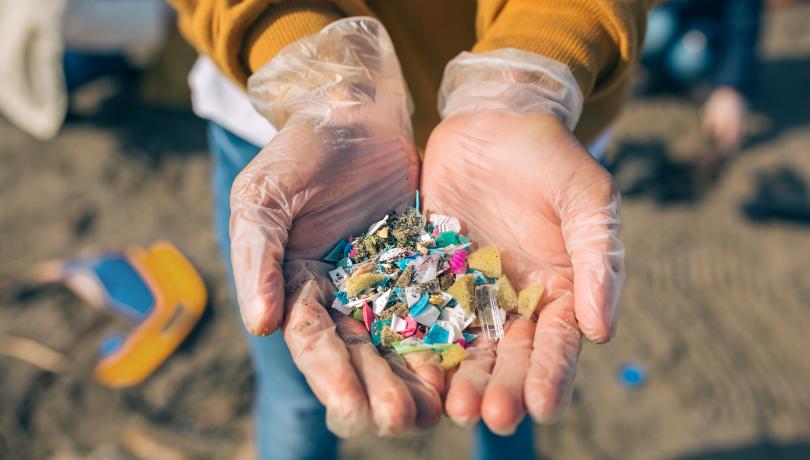These are species that had been previously described, but their ability to degrade plastic-derived products leached into the ocean was unknown.

In the Mediterranean, plastic pollution has reached alarming levels, with plastic fragments covering an area equivalent to 7,500 soccer fields, highlighting the urgent need for effective solutions to mitigate this pollution. In this context, natural bioremediation strategies are emerging as a promising alternative to reduce the impact of plastic waste on marine ecosystems.
Now, a scientific team led by the Institut de Ciències del Mar (ICM-CSIC) has made a significant step in this direction by identifying several bacterial species that uptake the chemical compounds released during plastic degradation in the ocean, which occurs when it gets in contact with seawater. This process, known scientifically as leaching, is enhanced by sunlight, causing floating plastic to release more compounds than sinking plastic. Some of these compounds are toxic to marine organisms.
The study's details are published in a recent article in the journal Environmental Microbiology Reports, opening new avenues for fighting marine pollution.
"Plastic dumping into the sea has less known consequences, such as the leaching of chemical compounds that are toxic to many marine organisms. Finding bacteria capable of degrading and eliminating these compounds is important as a way of bioremediation," explains Cristina Romera-Castillo, researcher at ICM-CSIC and the study's lead author.
A Solution to the Invisible Plastic Waste
The study focuses on bacteria that grow in plastic leachates, the chemical compounds that plastic releases into seawater as it degrades. These compounds can be additives added to plastic during manufacturing or byproducts from the the polymer degradation.
The newly published study contrasts with most previous studies, which focus on bacteria which degrade the plastic itself. In fact, this is the first work that studies bacteria capable of eliminating the chemical compounds released by floating plastic in the sea. Polyethylene, the most abundant plastic type in the ocean, was used for the analyses, along with a mix of aged plastics found on a beach that contained polyethylene and polypropylene. These two plastics are found in a wide variety of products, ranging from plastic bags to detergent or personal care bottles .
Known Bacteria with New Abilities
Although the identified bacterial species were already described in the scientific literature, they were not known as degraders of plastic leachates. According to the study's authors, this opens the door to new biotechnological applications to fight plastic pollution.
The study details that bacteria use dissolved organic matter derived from plastics for growth, respiration into CO2, biomass, and possibly other byproducts. Advanced techniques such as CARD-FISH to identify predominant bacterial groups, BONCAT to detect actively growing bacteria, and 16S rRNA gene sequencing to identify predominant bacterial species were used in the study.
Future Prospects
For future research, the team plans to continue exploring these bacteria to determine if any species could be isolated and cultured for more specific experimental purposes. "We want to continue studying these bacteria that degrade compounds released by plastic to see if any could be isolated and cultured and to perform more targeted experiments with them," adds Romera-Castillo.